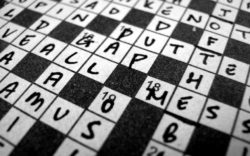From the day of President Kennedy’s assassination on, there has been speculation about the responsibility for his murder… This trend is a matter of concern to the U.S. government, including our organization… The aim of this dispatch is to provide material for countering and discrediting the claims of the conspiracy theorists… [A]ddressees [of this dispatch] are requested:
a. To discuss the publicity problem with liaison and friendly elite contacts (especially politicians and editors), pointing out that the Warren Commission made as thorough an investigation as humanly possible…[and] that parts of this conspiracy talk appear to be deliberately generated by Communist propagandists…
b. To employ propaganda assets to answer and refute the attacks of the critics. Book reviews and feature articles are particularly appropriate for this purpose.—Excerpt from secret CIA document “Countering Criticism of the Warren Report,” dated April 1, 1967, declassified in 1998.
The idea that the government should take action to thwart the influence of “conspiracy theorists” originated…at the Central Intelligence Agency. That may sound like a conspiracy theory to some. Alas, it is an indisputable fact.
—Jefferson Morley
Photo Credit: White House Press Office
One assassination theory is that President Kennedy was killed by his own government.
What investigative reporters Russ Baker and Milicent Cranor call “the mystery of the constant flow of JFK disinformation”—the mainstream media’s remarkable, persisting commitment to defending the Warren Report’s conclusion that Lee Harvey Oswald, acting alone, assassinated President John F. Kennedy—
is now fully comprehensible. We have long known that, criminally, outrageously and repeatedly, the Central Intelligence Agency stonewalled official government investigations of the JFK assassination. But we also now know that for the last half-century, using its numerous and influential assets and supporters in the mainstream media, the CIA has engaged in a clandestine crusade to preserve, protect, and defend the Warren Report’s sole-assassin claim from criticism, even when the criticism is warranted. We also know now that many of the defenses of the lone-assassin claim, as well as many of the attacks on Report critics, may be traced to persons with known or suspected CIA connections or pro-CIA sympathies.
The once-secret 1967 CIA document quoted from above—and it is certain there have been other, similar CIA directives—laid out a number of arguments to be used against Warren Report critics. These arguments are now standard among Report defenders. The most noteworthy of these arguments include:
- that “[n]o significant new evidence has emerged which the [Warren] Commission did not consider” (which was untrue even in 1967 and nowadays is preposterous);
- that “Oswald would not have been any sensible person’s choice for a co-conspirator” (which not only presumes Oswald’s guilt but also falsely assumes both that misfits cannot be conspirators and that the Warren Report’s depiction of Oswald as a misfit is accurate); and
- that critics of the Report are either “politically interested” or “financially interested” in finding conspiracy (which cleverly diverts attention from the merits of the critics’ assertions).
Rethinking the Lone-Assassin Theory
The CIA’s longstanding secret campaign to discredit researchers and research critical of the single-assassin claim is a principal reason why the media establishment treats the view that Oswald was the single assassin as a “fact” and dismisses other views of the JFK assassination as “conspiracy theories” (the very term used in the 1967 CIA document). This also explains why the mainstream media pretends that only cranks or kooks dispute the lone-assassin claim.
But the lone-assassin claim is not intrinsically correct, any more than a claim of conspiracy is, and it definitely is not illogical to suggest that the JFK assassination resulted from a conspiracy. The proper way of approaching the matter requires acknowledgment that the sole-assassin claim is a theory and that the claim that there was a conspiracy is also a theory, and that only the particular theory proven by the evidence can be accepted as “fact.” And of course a conspiracy theory may be true even if the identity of the individual conspirators is unknown and regardless of whether Oswald was one of the conspirators.
The Oswald-did-it theory is, therefore, but one theory of the assassination. Is it the correct one? That is, does the evidence prove it?
Rejection of the Lone-Assassin Theory
Except for those within the bubble of the media establishment and their dupes, the number of researchers and authors who are true believers in the sole-assassin theory is steadily shrinking.
On the other hand, the most respected JFK researchers and authors, almost all of whom are not part of the media establishment, reject the Oswald-did-it-alone theory and have concluded, based on a vast amount of evidence (much of which was unavailable to the Warren Commission), that the assassination probably resulted from a conspiracy. Jefferson Morley—indefatigable researcher, author, former Washington Post journalist and founder of the leading assassination website jfkfacts.org—is an example.
“There are a lot of implausible theories of who killed JFK, and the notion that a ‘lone nut’ was solely responsible is one of them,” he writes. “More likely, Kennedy was ambushed by enemies who sought to avoid detection.”
There is also, again based on the currently available assassination evidence, increasing agreement among these reputable assassination researchers, including distinguished university professors who have investigated and written about the assassination, that Oswald probably was the patsy of the conspirators.
Today, in short, there is an ever-growing disparity between the media establishment’s obsolescent view of the JFK assassination and the views held by the most knowledgable current authorities on the assassination. The mainstream media, spurred on by the CIA acting behind the scenes, clings to the outmoded one-assassin theory, whereas the reliable assassination authorities conclude that, whether or not that theory was ever supported by the evidence, it no longer is.
Despite the continuing endeavors of the mainstream media to prop up the tattered single-assassin theory, the American people do not believe it. They never have believed it. A Gallop poll taken less than a week after the assassination found that 29 percent of Americans believed there was a lone assassin and that 52 percent believed there had been a conspiracy. A Gallop poll taken on the 50th anniversary of the assassination in 2013 revealed that 61 percent believe in a conspiracy and 30 percent believe there was one assassin.
The media establishment has therefore failed, despite its best efforts, to persuade Americans to accept the lone-assassin theory. This, however, does not lessen its guilt or permit it to escape just condemnation. Robert Hennelly and Jerry Policoff are entirely correct when they write in their article “JFK: How the Media Assassinated the Real Story” that “the mainstream media have disgraced themselves by hewing blindly to the single-assassin theory. All… efforts [to question the theory] have… [received] derision from the mainstream media… [T]he reporting of [the JFK assassination] is one of the worst travesties of the American media.”
If a conspiracy theory of the JFK assassination now appears more likely to be true than a sole-assassin theory, this overarching question remains: Which of the myriad conspiracy theories is the correct one? At present, there is simply no authoritative answer to this question. In my opinion, for what it is worth, the most probable conspiracy theory is the one suggested by blogger Will Folk and other students of the assassination.
According to Folk, “the fundamental truth” of the assassination is that “Kennedy was killed by his own government for pursuing policies counter to its most powerful established interests—most notably, an attempt to end the Cold War and the global interventionist foreign policy associated with it.”
Donald E. Wilkes, Jr. is a professor emeritus at the University of Georgia, where he taught in the law school for 40 years. This is his 45th published article on the JFK assassination.
Like what you just read? Support Flagpole by making a donation today. Every dollar you give helps fund our ongoing mission to provide Athens with quality, independent journalism.











